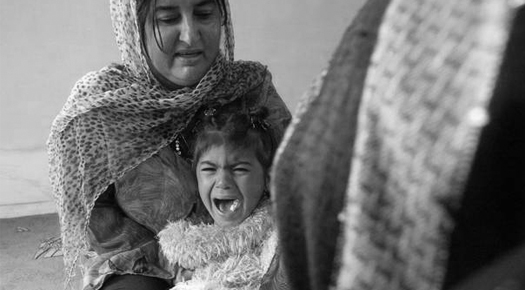
Setting a precedent to such cases of female genital mutilation, three Dawoodi Bohras in Australia are facing a Supreme Court trial for having carried out the barbaric practice on at least two minor girls. Three years since their arrest, the highest court of law in New South Wales is set to hear the trial of the girls’ mother, the nurse who carried out the procedure and a senior clergy member who asked members of the community to lie to authorities about the widespread practice. The trial could go up to six weeks and if convicted, all three accused could face jail terms of seven years each.
Dawoodi Bohras are a small but affluent sect within Shia Muslims, comprising of approximately one or two million adherents who primarily hail from the Indian state of Gujarat. Even though the majority of the sect resides in India, there is a significant diaspora of Dawoodi Bohras around the world. As World Health Organization classifies female circumcision as a form of genital mutilation, several countries, including Australia have laws criminalizing the practice even though India does not.
The practice of female circumcision is believed to have originated in Africa, long before the emergence of Islam and it finds no mention in the Holy Quran. Most people practicing varying degrees of female circumcision claim to do so to moderate a woman’s sexual desires and prevent her from engaging in premarital sex or extramarital affairs.
World Health Organization categorizes female genital mutilation into four types – Type 1 involves cutting a portion of the clitoris, Type 2 involves cutting the entire clitoris, Type 3 involves cutting the clitoris as well as the labia while Type 4 involves complete mutilation as well as sewing up of the vaginal opening. Dawoodi Bohras are known to practice Type 1 FGM – cutting off of the clitoral hood before a girl enters her teen years although some cases of more severe damage have been reported sparsely. In all probability, the sect inherited the primitive practice from Egypt or Yemen, from where they claim to have originated during Fatimid Dynasty’s rule in the 11th century.
In Australia, female circumcision continues to be practiced among those who have migrated from Africa, South Asia and West Asia; though all forms of female genital mutilation were criminalized in the country in 1997. Yet, the case of the two circumcised girls within the country’s Dawoodi Bohra community surfaced in 2012, when the Department of Community Services in New South Wales received information from an anonymous caller about the widely prevalent practice. State police officials started investigating the anonymous tip-off, to eventually find that two sisters, then aged six and seven, had been circumcised in two separate incidents in October 2010 and July 2012 respectively. Upon being interviewed, the girls revealed that they had undergone ‘khatna’; a woman they did not know had carried out the procedure in Sydney first, and then again in Wollongong. Describing the procedure as “a little cut down there” the girls were given some lemonade to sip on and asked to imagine a place of their dreams, as that would help ease the pain.
In conversations secretly recorded after the girls’ family came to know of the police investigations, their mother was heard telling them, “We told you, my child, this is a secret. Never tell anyone.” In another recorded phone call, the nurse who performed the procedure was heard saying, “I’m in trouble. I do not want to go to jail at my age.”
Initially, police officials arrested eight Dawoodi Bohras but charges against the girls’ father and four other relatives were dropped after lower courts ruled that they were innocent.
In India, the spokesperson for Dawoodi Bohras refused to comment on the above case, though a senior scholar confirmed this is the first time that a member of the sect has been arrested on grounds of female genital mutilation.
Community members have mixed sentiments about the ongoing trial in Australia.
“It is important to follow the law of the land in which you live, so if this practice is illegal in Australia, they should not have done it there,” said a Dawoodi Bohra businesswoman, who did not wish to be identified. “But seven years of jail would be too much if they are convicted – what would happen to the children?”
“I am horrified that this barbaric practice has followed this community overseas,” said Rashida Murphy, another Dawoodi Bohra. “Those little girls will never be the same again and their mother should be made to pay by jail time to deter others contemplating this savagery.”
Pious adherents of the sect say however that the ritual is carried out by parents for the wellbeing of their own children.
“I too have had khatna performed on my daughters and initially I saw no harm in it,” said a Dawoodi Bohra mother, who was told that the circumcision is meant to curb a girl’s sexual energy during puberty. “Now I am ambivalent about the practice. There must be some reason why the Prophet endorsed it, but if it is stopped, then it should be stopped uniformly everywhere.”
Photo Credits: Pamela Geller
